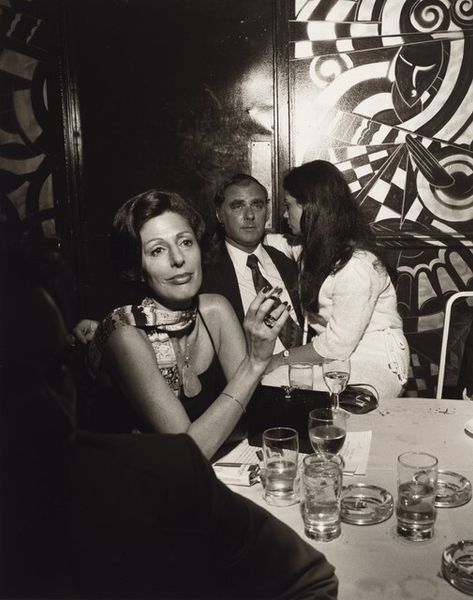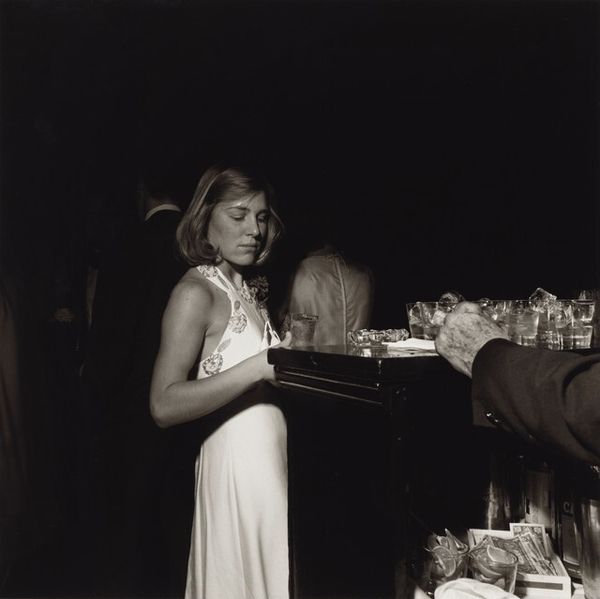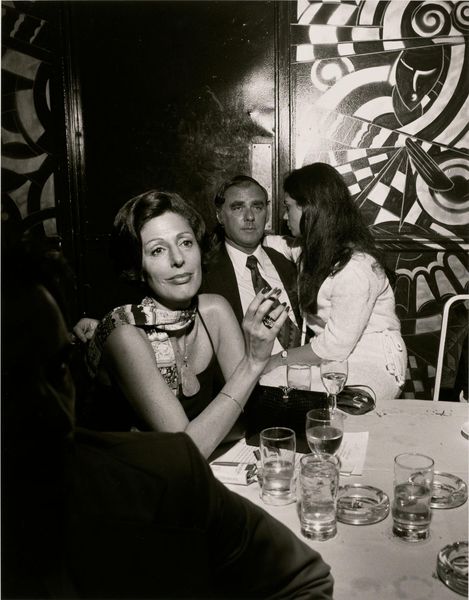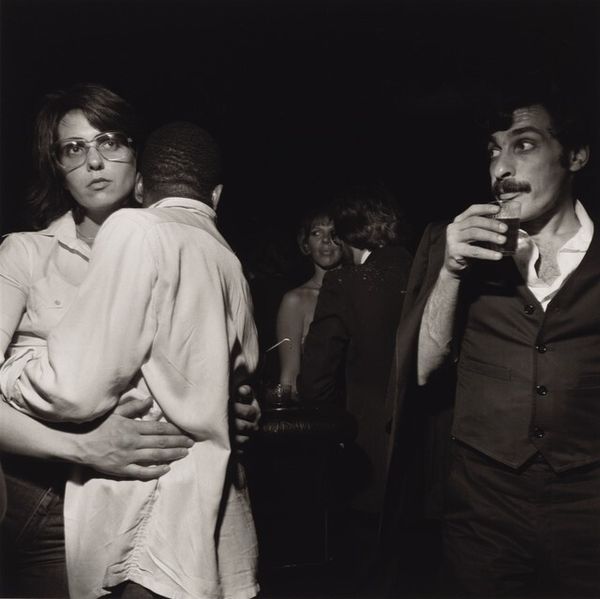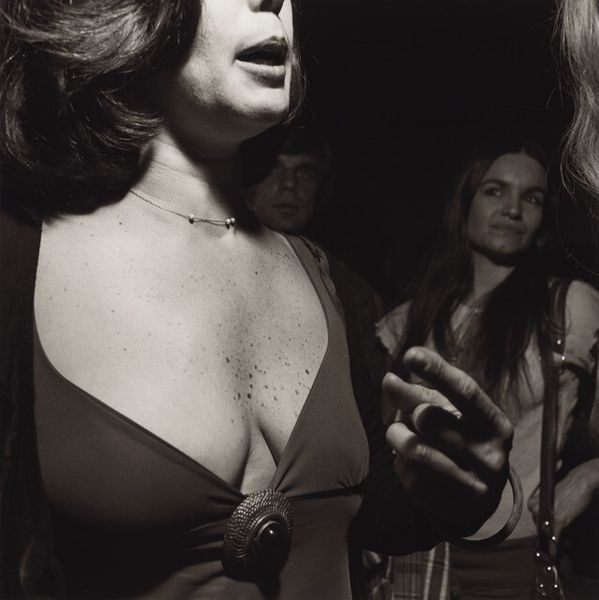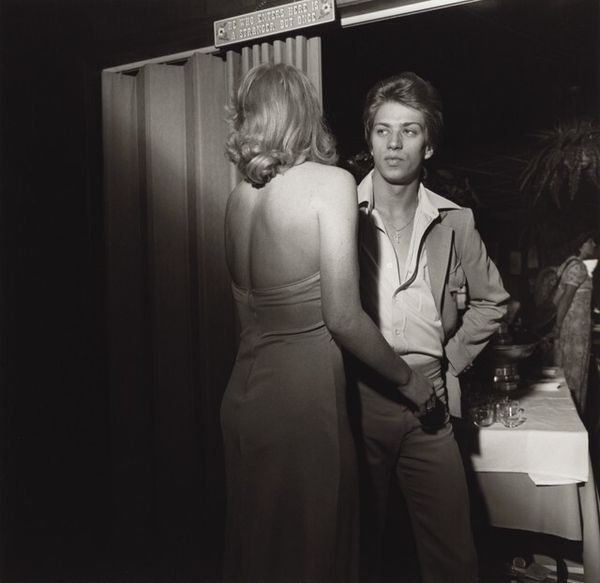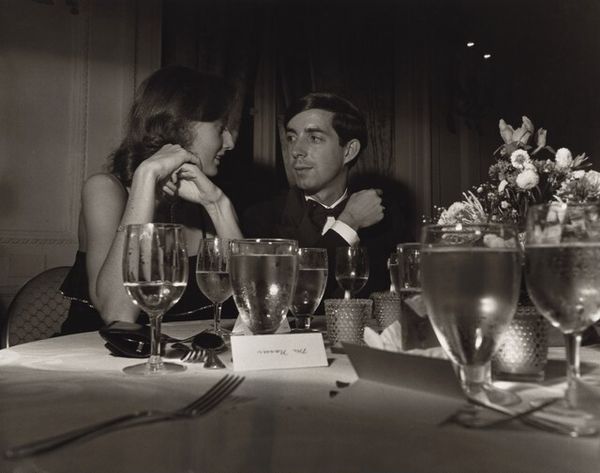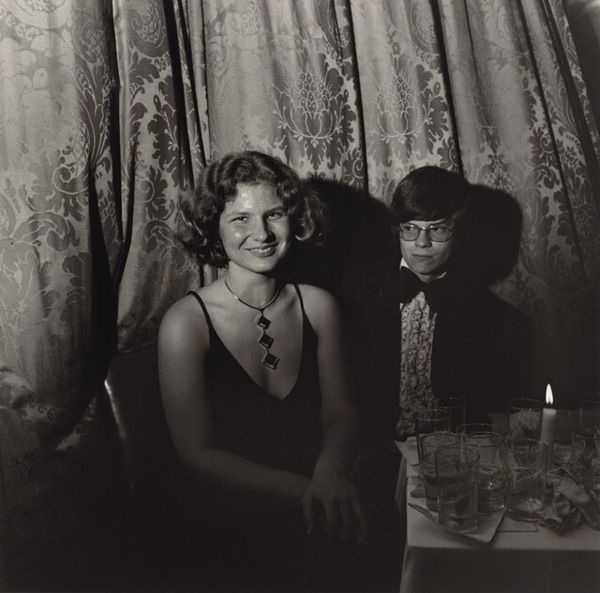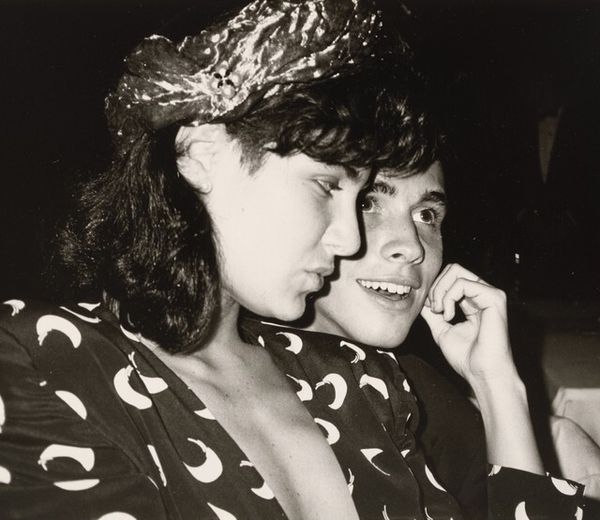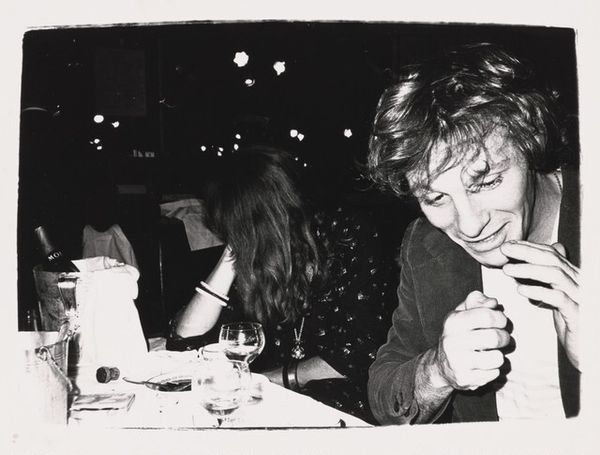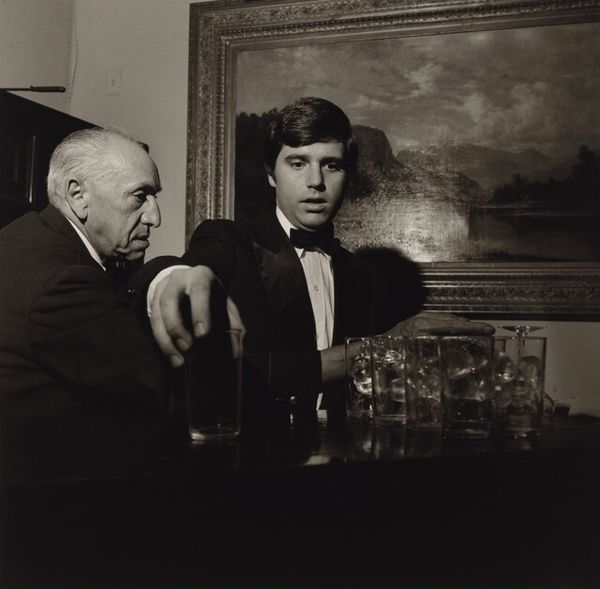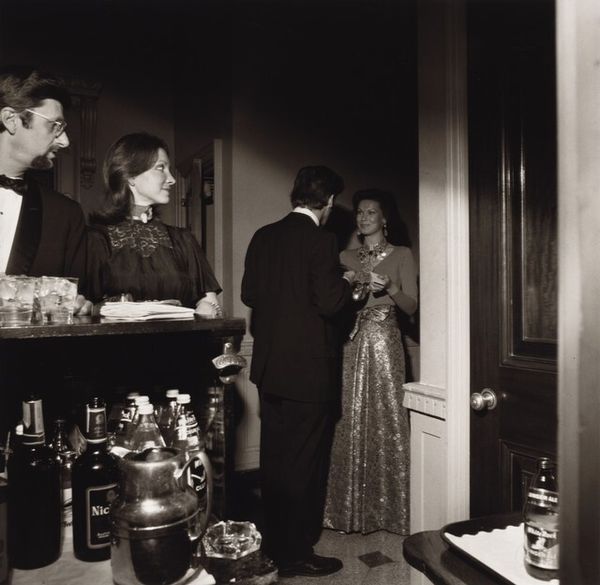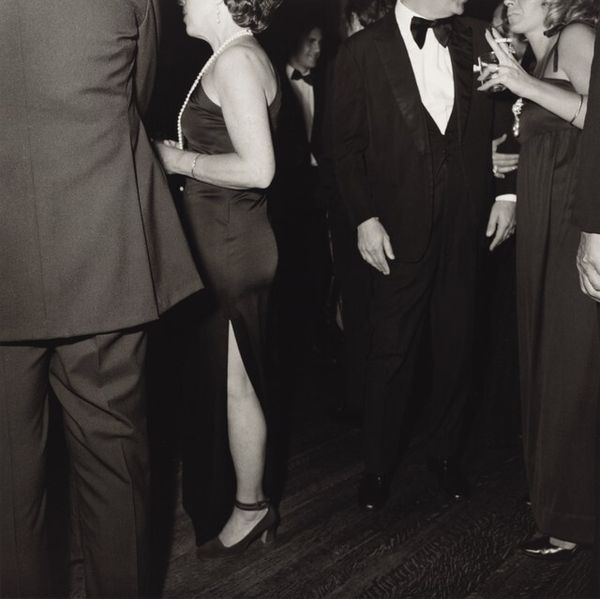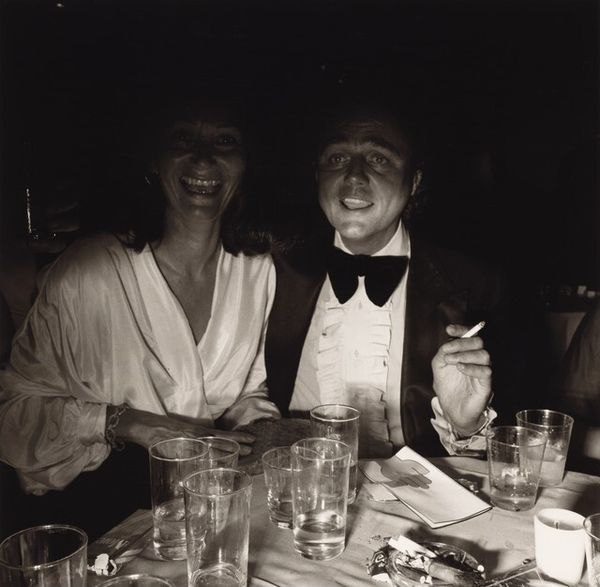
photography, gelatin-silver-print
#
portrait
#
black and white photography
#
social-realism
#
photography
#
historical photography
#
black and white
#
gelatin-silver-print
#
monochrome photography
Dimensions: image: 35.7 × 36.5 cm (14 1/16 × 14 3/8 in.) sheet: 50.8 × 40.64 cm (20 × 16 in.)
Copyright: National Gallery of Art: CC0 1.0
Editor: Larry Fink’s “Second Hungarian Ball, New York City” from 1978, captured in gelatin silver print, exudes this stark intimacy, doesn’t it? It's a close-up, grainy black and white image, with a sharply dressed man getting a kiss on the cheek. What social commentary can we unpack from it? Curator: Precisely. Fink's social realism isn't just observation; it’s a critical gaze on power and class. In this photograph, the privileged setting of a New York ball is thrown into relief. Consider the post-war context: Hungarian refugees seeking solace and status in America. The photograph could then reflect upon the complexities of cultural assimilation. Does this celebration reinforce or challenge pre-existing hierarchies? What kind of narratives is Fink crafting about immigrant experiences? Editor: That’s a good point. There’s definitely a feeling of performative identity here, of wealth on display. Are we seeing an outsider's perspective, though? Or a commentary from within that social stratum? Curator: I think it's both. Fink often immersed himself in these spaces, but his framing and raw, unflinching style hints at an awareness of the performativity of the occasion. Think about the women's bare shoulder juxtaposed with her diamonds and the man’s formal attire. There's a vulnerability and awkwardness to the subjects which disrupt the idealized image. What emotions does this disjunction trigger? Editor: The awkwardness is palpable! It complicates the glamour; that’s where its power resides, I suppose. Thank you. Curator: Indeed. And by dissecting that discomfort, Fink compels us to question the nature of privilege, belonging, and visibility itself. A photograph, thus, as a starting point for a broader inquiry into social justice.
Comments
No comments
Be the first to comment and join the conversation on the ultimate creative platform.
